A Pandemic Tale of Hoarding and Absurdity
March 2020. The world locked down. Streets emptied, fear spread, and suddenly, in privileged nations, supermarket shelves were stripped bare—not of food or medicine, but toilet paper.
For those with running water, bidets, and soap, the obsession was irrational. Yet, panic-induced consumer behavior took over. While scientists worked on a vaccine, the masses stockpiled rolls like they were the last defense against collapse.
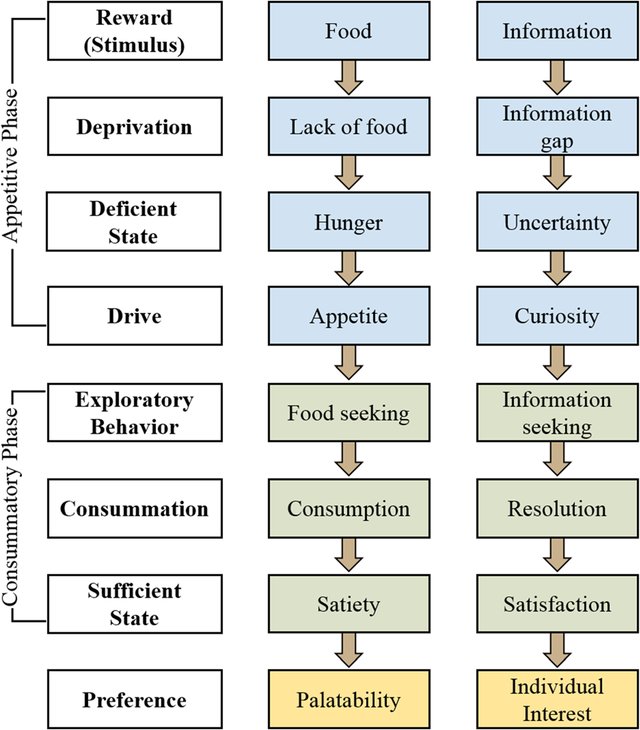
A Reflection on Absurdity: Cleaning Ourselves, Destroying Food Ressources & Nature
The irony is tragic:
– We destroy forests → Process them into toilet paper → Flush them down the drain
–We cultivate monocultures, erasing biodiversity and potential food sources, just to create a disposable square for a fleeting need
– We hoarded, despite having running water—a resource that makes toilet paper unnecessary in the first place
The real paradox? We sacrifice fertile land and edible ecosystems for a product that serves only seconds of use—meanwhile, in other parts of the world, food insecurity grows.
Forests that could feed us become waste.
Ecosystems that could nourish us are exploited to extinction.
Why? Because capitalism thrives on illusion—on the false sense of control through consumption. Instead of building resilient systems, we build single-use industries that consume everything before we even question their necessity.
“In the fertile depths of collective stupidity, a single grain of genius lies concealed, awaiting the transformative touch of insight.”
The Pandemic as a Mirror: The Privilege of Panic
For many, the pandemic was an inconvenience—a shift to remote work, online shopping, and Zoom fatigue. For others, it was a matter of survival.
- While the privileged bought toilet paper, others fought for food.
- While some wiped with pulp, others lacked clean water.
- While forests burned, we turned them into tissue, convincing ourselves we were cleaner for it.
The toilet paper effect revealed a deep truth: our societies are engineered to consume first, think later.
From Crisis to Mycelial Innovation: Toilet Paper as a Substrate for Survival
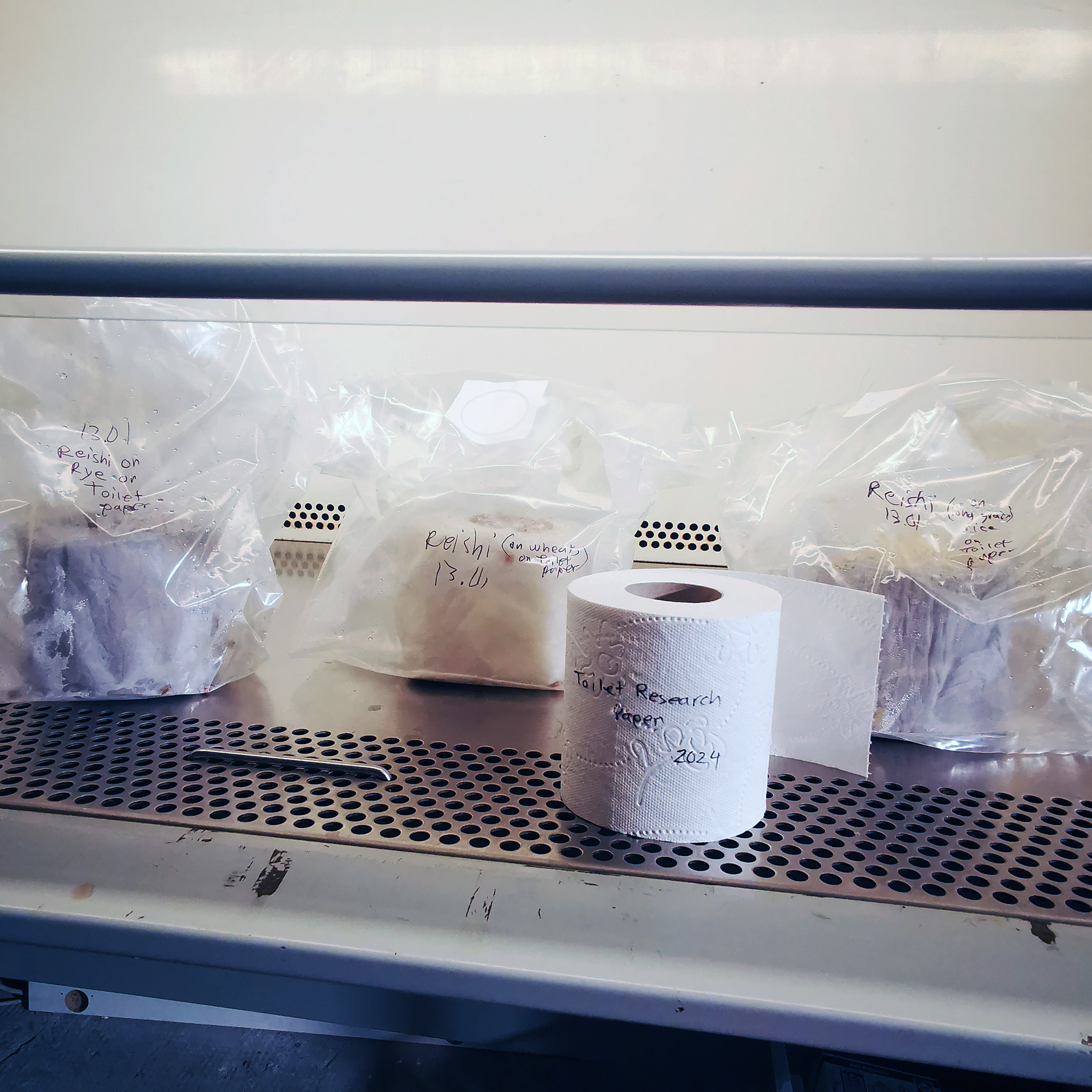
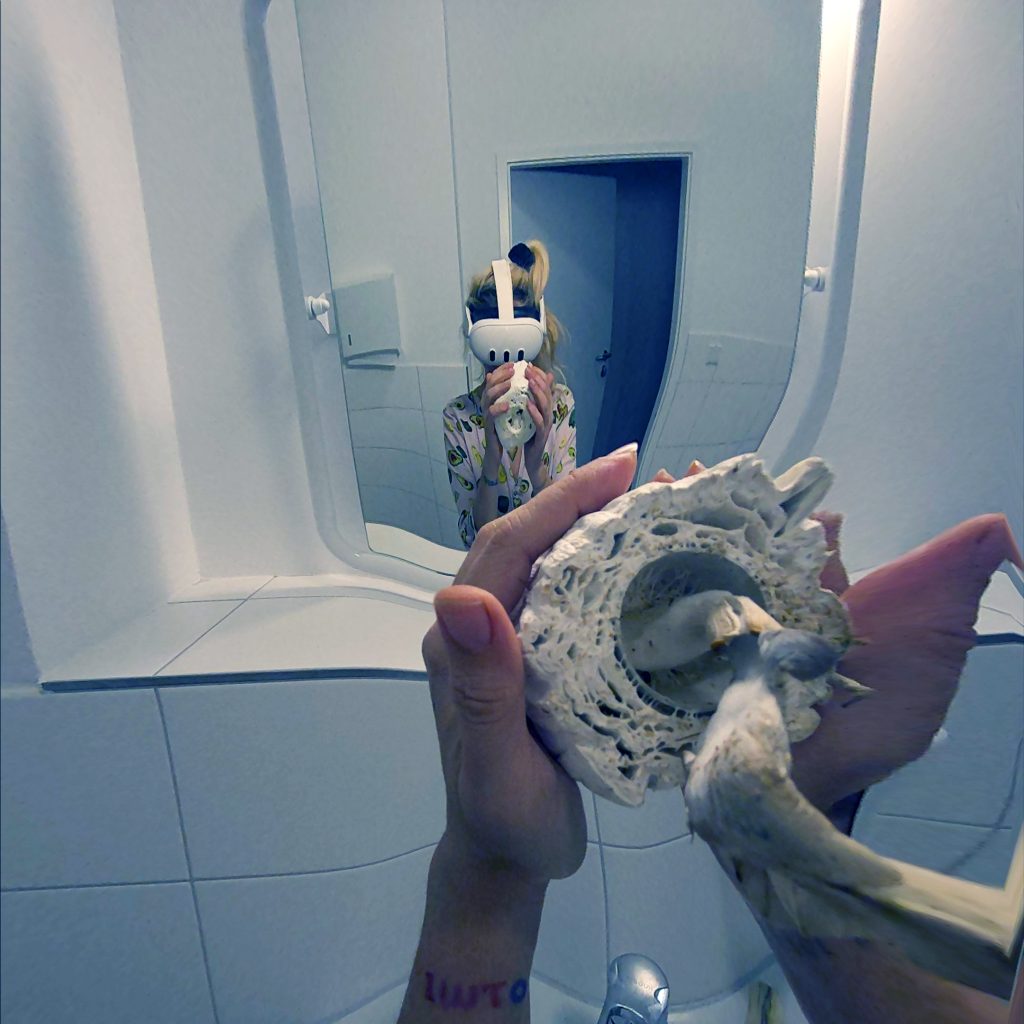
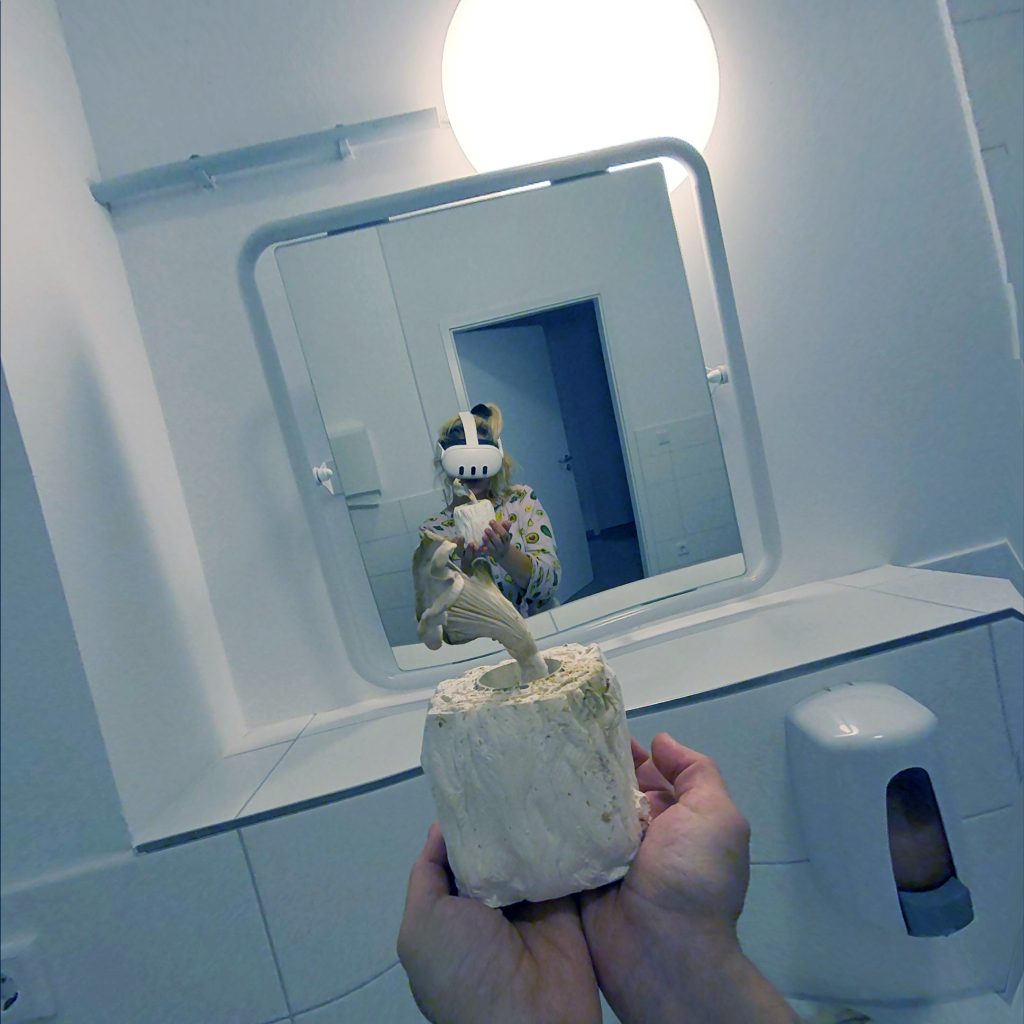
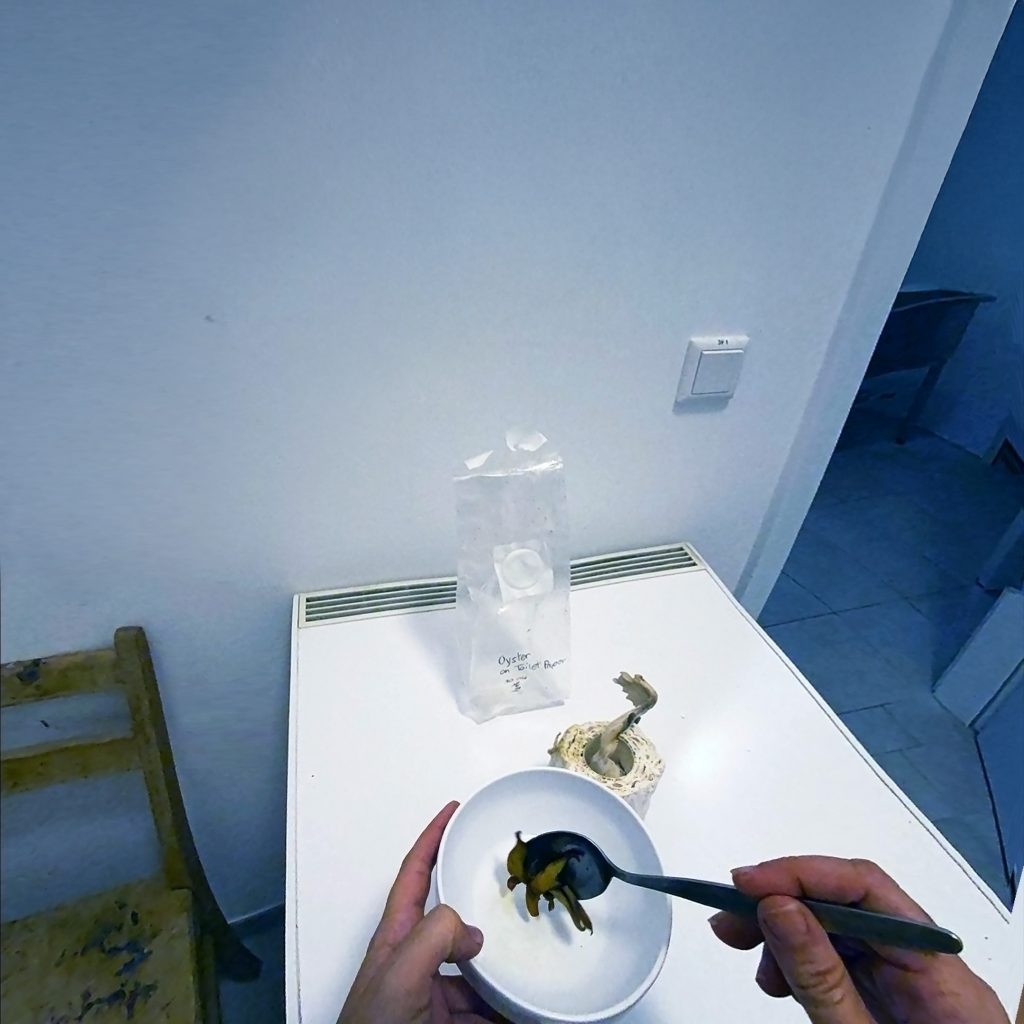
In the Fertile Depths of Collective Stupidity…
“In the fertile depths of collective stupidity, a single grain of genius lies concealed, awaiting the transformative touch of insight.”
At first, I panicked—not from the virus itself, but from the sheer absurdity of it all. Why toilet paper? Why were people acting like wiping their asses was the key to survival?
I desperately tried to find a rational explanation—some hidden logic behind the madness. But then, a simple phone call with my mother gave me the answer I wasn’t expecting.
Frustrated, I ranted about Germany’s pandemic policies, the toilet paper hoarding—and then I asked:
“How are you guys doing?” (Living poor in Greece, during an economic crisis turned health crisis).
She laughed bitterly and said:
“Let’s just say that the only thing we can afford to eat is toilet paper.”
That joke hit me like a punch to the gut.
The split realities worldwide are unbearable—in some countries, people were hoarding disposable luxury, in other, people struggle to afford food, medicine, basic needs. I felt helpless. Angry. WTF are we doing on this planet? Stuck in a capitalist apocalypse with no way out.
And then… my brain short-circuited into “How can I make toilet paper edible?”
That frustration, that helplessness, turned into an idea:
“A-ha! Growing mushrooms on toilet paper. Eating the mushrooms.”
If capitalism gives us waste, let’s turn it into life.
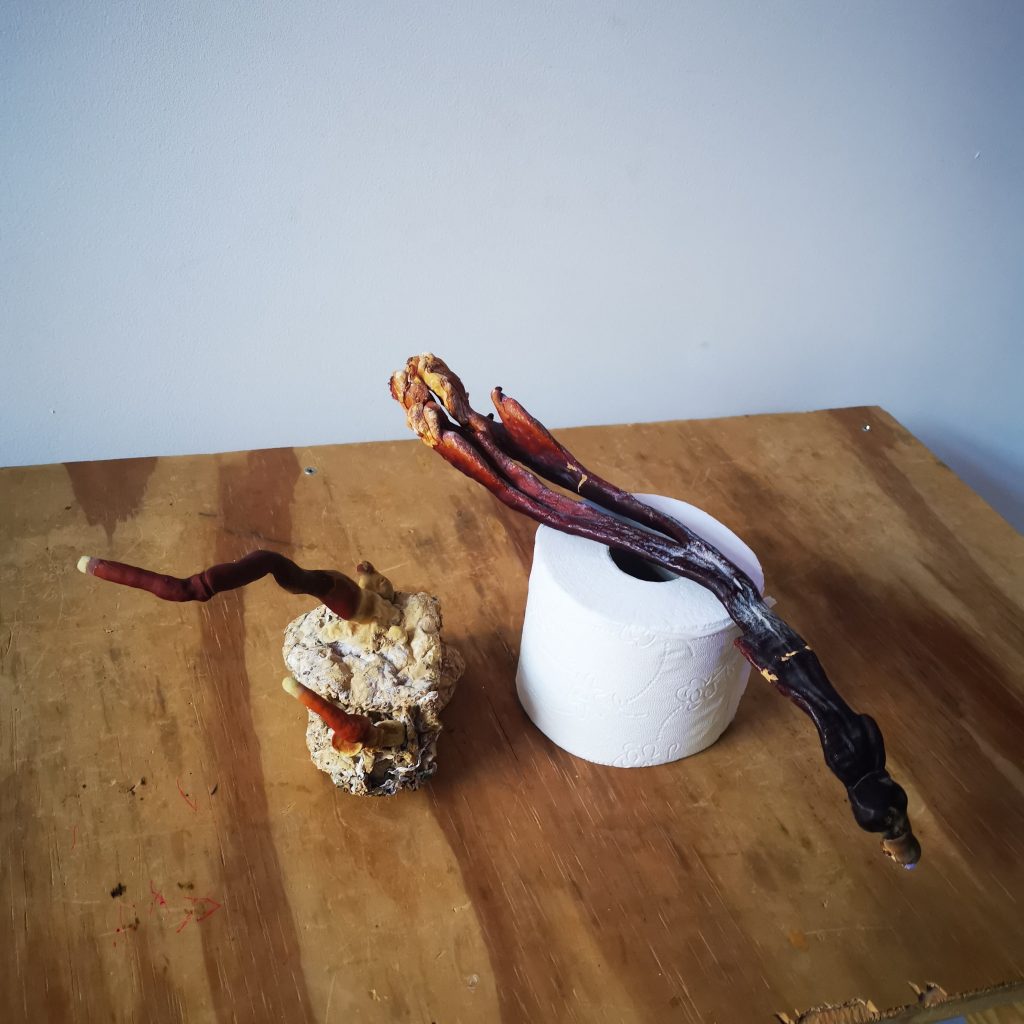

From Crisis to Mycelial Innovation: Toilet Paper as a Substrate for Survival
Since then, I’ve been growing different mushrooms on toilet paper—exploring how they could be:
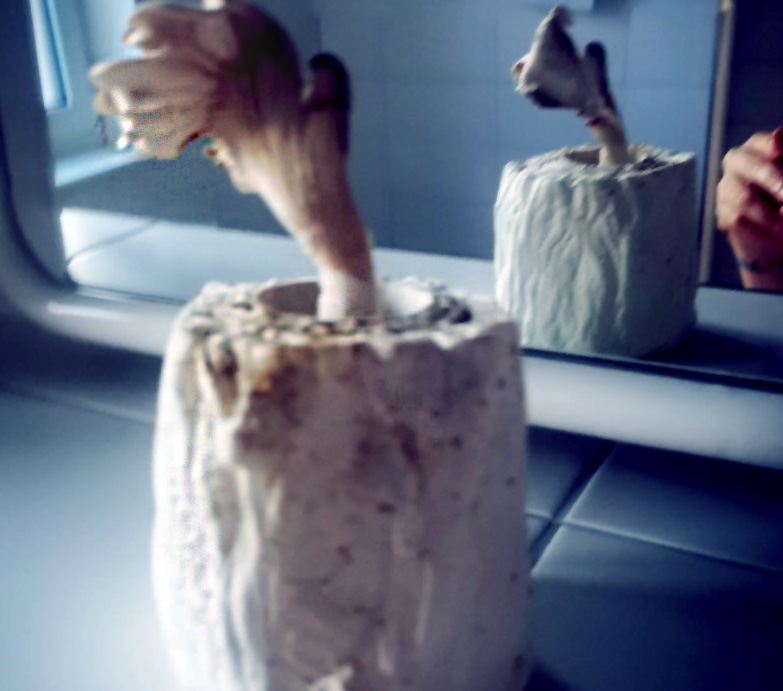
✅ An emergency food source—Because mushrooms can thrive on cellulose, transforming waste into sustenance.
✅ A medicinal pharmacy—Some fungi, like Ganoderma and Cordyceps, have immuno-boosting properties.
✅ A glow-in-the-dark lantern—Certain bioluminescent fungi could replace artificial lighting in extreme conditions.
What started as a capitalist nightmare became a regenerative experiment—a literal transformation of waste into survival.
Flushing Down the Planet: The Bigger Issue
The global toilet paper industry is responsible for:
–>Mass deforestation—entire forests cleared for tissue production
–>Monoculture plantations—biodiversity erased for soft white rolls
–>Chemical-laden processes—bleaching, water pollution, and unsustainable pulp production
And for what? To be used for seconds, then flushed into oblivion.
We waste forests to wipe our ( ‿ * ‿ ), while nature has been composting waste into new life for billions of years.

Final Thought: The Art of Reimagining Waste
We destroy ancient forests to maintain sanitary habits—but is it really sane if it comes at the cost of planetary destruction?
Perhaps the pandemic was a warning, an absurd reflection of our societal contradictions—one last moment before we flush ourselves out of a future entirely.
But where capitalism sees waste, fungi see opportunity.
The question is: What do we choose to cultivate?
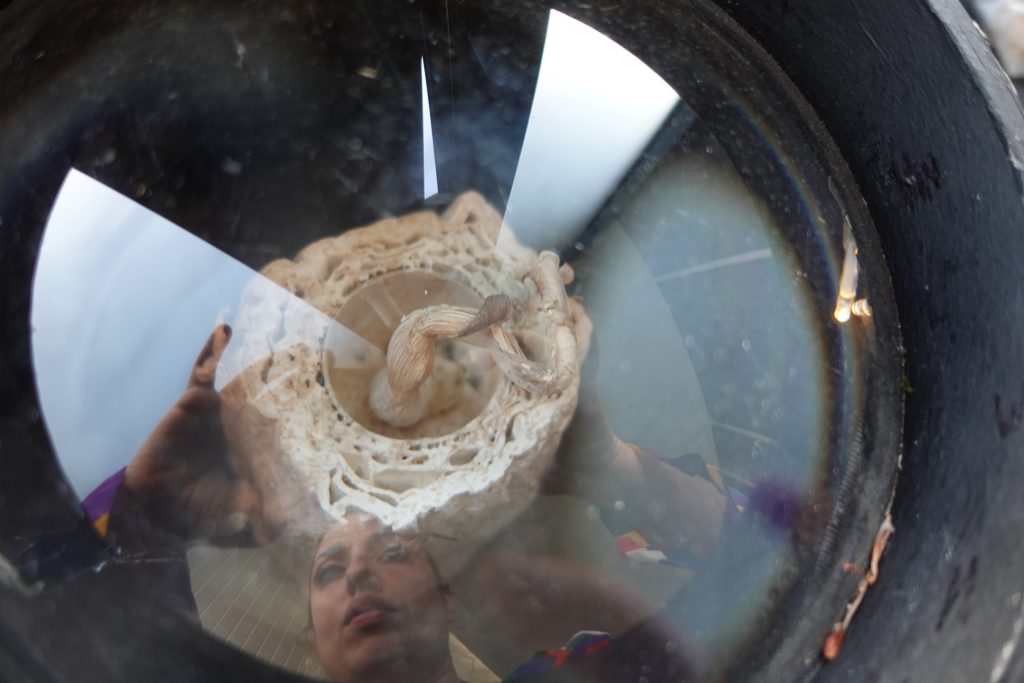
What Do You Think?
How do we reimagine waste, hygiene, and survival in a way that doesn’t cost us the planet?
Drop your thoughts in the comments below!

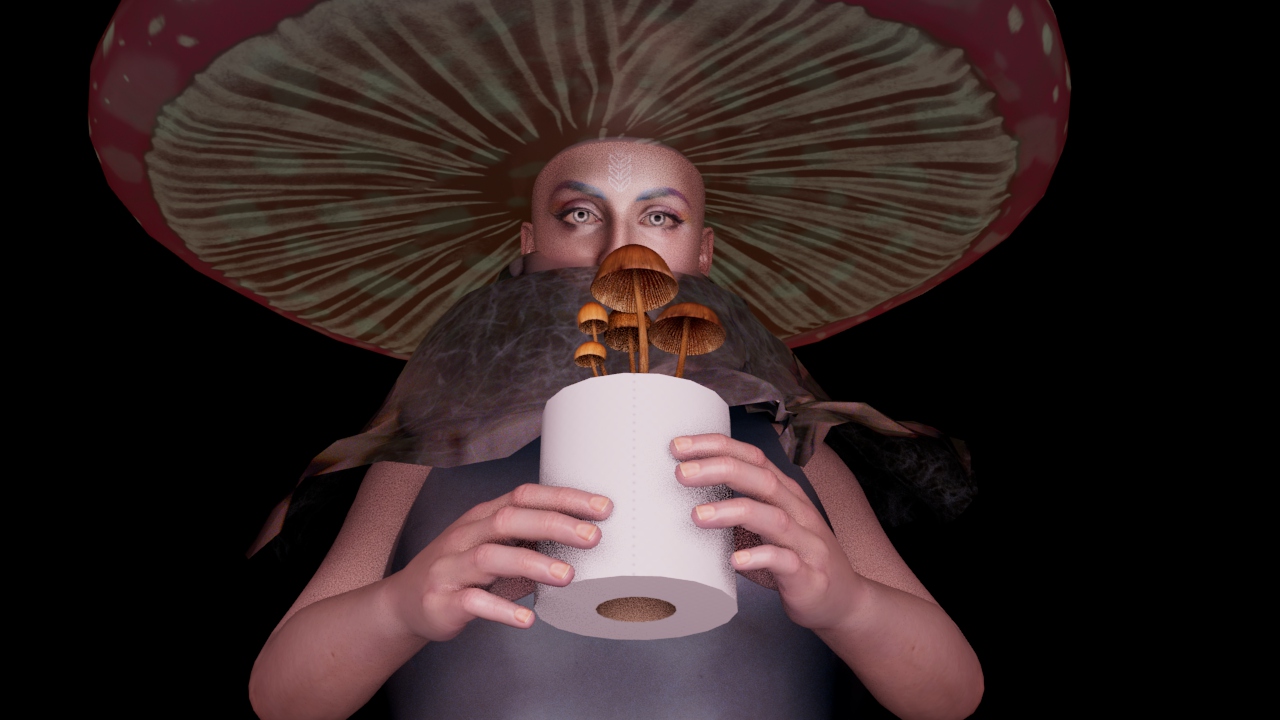
Leave a Reply